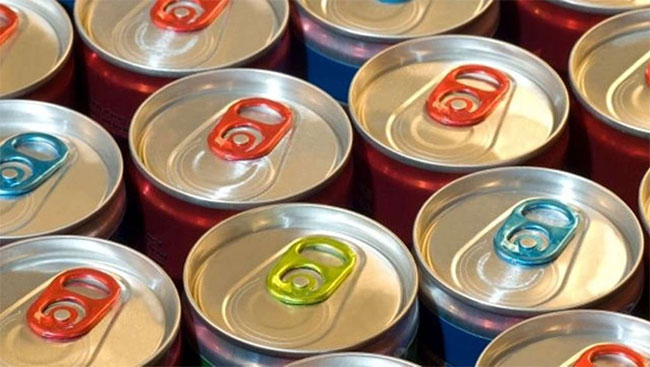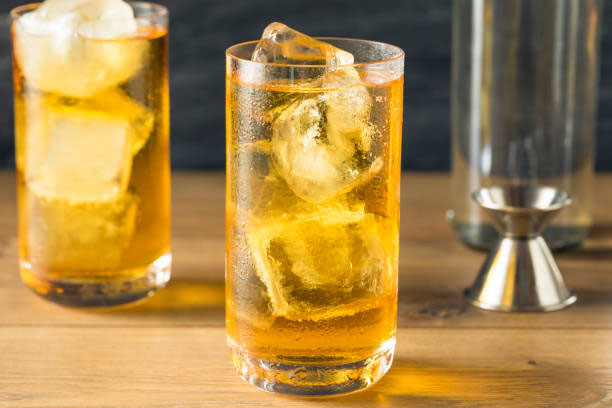Energy drinks can provide certain benefits such as reducing fatigue and improving performance, but they also pose various negative health risks when consumed in excess.
In the 20th and 21st centuries, the energy drink market has exploded, becoming a multi-billion dollar industry. Energy drinks are now sold in over 140 countries worldwide and are a popular beverage among many children, teenagers, and young adults. With catchy slogans and promises of instant energy, it’s easy to overlook the health risks associated with energy drinks.
What Are Energy Drinks?
Energy drinks are beverages that contain stimulants, usually including caffeine. They are often marketed as products that enhance mental stimulation, increase energy, alertness, and work capacity.
Based on size, energy drinks are categorized into two types. One type is similar in volume to regular soft drinks, typically a 16 oz (approximately 473 ml) can. The other type is smaller, usually a 2 oz (approximately 59 ml) can.
The primary ingredient and key component in energy drinks is caffeine. Caffeine is a stimulant that can increase heart rate and blood pressure. The caffeine concentration in a 236-354 ml can of energy drink ranges from approximately 72 to 150 mg. In contrast, the soft drinks we commonly consume contain about 9.6 – 10.71 mg of caffeine per 100 ml.

Energy drinks contain stimulants, primarily caffeine. (Photo: Dnaindia).
Other ingredients in energy drinks may include guarana, green tea extract, and inositol, all of which contain caffeine. Additionally, they may contain ginseng, red ginseng, taurine (a stimulating amino acid), vitamins, minerals, and other antioxidants.
Health Effects of Energy Drinks
Some studies have found that energy drinks can help improve physical endurance, but there is little evidence of any effects on muscle strength. Energy drinks can enhance alertness and improve reaction time, but they may also decrease hand stability.
According to many manufacturers, energy drinks offer benefits such as instant thirst quenching, energy replenishment, combating drowsiness, enhancing mental alertness, improving focus, providing a feeling of exhilaration after consumption, and boosting energy metabolism.
However, there are several harmful effects associated with energy drinks, including:
- Cavities: A study published in the journal General Dentistry revealed that the high sugar content in energy drinks can erode tooth enamel more than other beverages.
- Temporary intoxication or addiction: It is known that caffeine is a primary component of many energy drinks on the market today. New users or those sensitive to caffeine may experience intoxication after consuming energy drinks, with symptoms such as nausea, discomfort, dizziness, vomiting, rapid heartbeat, and increased blood pressure.
Many habitual energy drink consumers start with 1-2 cans per day to feel refreshed and alert. However, if they stop consuming, they may experience cravings, leading to more frequent consumption of energy drinks.
- Insomnia: Consuming energy drinks at night, when preparing for sleep, can cause restlessness and potential insomnia.
- Obesity and hypertension: In addition to caffeine, energy drinks also contain significant amounts of sugar. According to the Substance Abuse and Mental Health Services Administration (SAMHSA), a 250 ml can of energy drink can contain approximately 27.5 g of sugar. Excessive consumption can easily lead to overweight, obesity, and uncontrolled hypertension.
- Acid reflux: If you have stomach issues, you should consider this before consuming energy drinks due to their high acidity. After consumption, they may cause feelings of gastric discomfort, acid reflux, and continuous heartburn.
Who Should Avoid Energy Drinks?
Doctors and nutrition experts assert that energy drinks can affect anyone who consumes them, particularly children and adolescents.
Children aged 12-18 should not exceed 100 mg of caffeine per day. Therefore, children and teenagers should avoid energy drinks unless under careful parental supervision.
Adults choosing to consume energy drinks should check the label for caffeine content. They should not consume more than 200 mg of caffeine at a time or mix it with alcohol.

Do not consume more than 200 mg of caffeine at a time.
Individuals who are intoxicated should not consume energy drinks or mix them with other alcoholic beverages (beer, liquor).
Athletes consuming energy drinks may enhance mental focus, alertness, and endurance primarily through the effects of caffeine. However, the safety and efficacy of other components in energy drinks need further research. Therefore, athletes should avoid energy drinks during or after physical activity.
People with diabetes or kidney disease should avoid energy drinks. High caffeine levels exceeding recommended limits over extended periods can pose risks for complications.
Pregnant women, young children, the elderly, and individuals with chronic illnesses should refrain from consuming energy drinks.
Finally, individuals allergic to caffeine should avoid energy drinks, as they contain significant amounts of this stimulant.
Can Long-Term Use Lead to Addiction or Dependence?
Energy drinks can provide certain benefits such as reducing fatigue and improving performance, but they can also be associated with health issues when consumed excessively. In some cases, they may lead to energy drink addiction.
Some signs of energy drink addiction include: Intense cravings for energy drinks; mental images of refreshment when thinking about energy drinks; inability to control the amount of energy drinks consumed.
Sometimes, the simplest way to combat an energy drink addiction is to replace it with similar beverages. Healthier options that contain little or no caffeine, sugar, and artificial sweeteners can serve as alternatives to energy drinks, such as decaffeinated coffee, green tea, fruit juice, sugar-free sparkling water, herbal tea, or fermented tea.
| This article was provided by Dr. Nguyễn Thanh Yến, Pharmacy Department, Phuong Chau International Hospital, Can Tho; student Hoàng Nguyễn Trần Hải, Pharmacy Department, Hue University of Medicine and Pharmacy; and MSc. Dr. Võ Quang Lộc Duyên, graduate of Can Tho University of Medicine and Pharmacy. |


















































